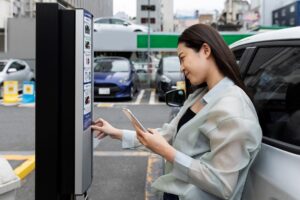BEIJING (ANN/KOREA HERALD) – As advancements in chip technology, algorithms, and large language models accelerate, artificial intelligence (AI) is playing an increasingly significant role in numerous industries. Below is a breakdown of the key areas where AI is making a transformative impact:
Customer Service
AI is revolutionising the customer service industry by offering efficient and consistent support. AI-powered chatbots, capable of handling large volumes of inquiries simultaneously, provide quick responses using natural language processing to mimic human interaction. These systems enhance the customer experience by personalising recommendations and offers, while also managing routine tasks like scheduling appointments and processing transactions.

AI systems continuously learn from interactions to improve performance, but some users feel that AI lacks empathy and struggles with complex or unusual queries, requiring human intervention.
Healthcare
AI plays a crucial role in hospitals, aiding diagnostics by analysing medical images such as X-rays, MRIs, and CT scans. AI can detect subtle anomalies that may be missed by the human eye, facilitating early and accurate diagnoses. It also helps monitor patient data in real-time, predicting health issues and allowing for preemptive interventions that improve patient outcomes and reduce strain on hospital staff. Beyond clinical applications, AI optimizes administrative tasks like appointment scheduling, inventory management, and billing. Additionally, AI-powered telemedicine expands access to healthcare, especially in remote areas.
Travel
AI enhances travel experiences by simplifying the booking process for flights, hotels, and rentals through personalised algorithms. Travelers receive tailored suggestions for activities, dining, and attractions based on their preferences. AI also assists with real-time updates on traffic, weather, and flight statuses, ensuring a smooth journey. At destinations, AI-powered translation and navigation tools help travelers navigate unfamiliar environments, further enhancing convenience.
Smart Home Appliances
AI has revolutionised household appliances, making them smarter and more energy-efficient. AI-powered refrigerators can track food expiry dates and suggest recipes based on available ingredients, while AI-driven washing machines and dishwashers adjust their cleaning cycles to save water and energy. Smart thermostats learn user habits to efficiently manage heating and cooling systems, optimising energy use. These advancements not only improve appliance performance but also promote sustainability by reducing energy consumption.
Smartphones and Tablets
AI integration has significantly enhanced the capabilities of smartphones and tablets. AI-driven voice assistants like Siri and Google Assistant enable users to perform tasks through voice commands, while AI-powered cameras offer features such as autofocus, image stabilisation, and facial recognition for improved photos and videos. Additionally, AI optimizes device performance by managing apps and memory usage, extending battery life, and providing personalised content recommendations.
Driving
AI is revolutionising transportation with autonomous vehicles and advanced driver-assistance systems. These technologies rely on AI to process vast amounts of data from sensors, cameras, and GPS, enabling vehicles to make real-time decisions. AI-driven features like adaptive cruise control and emergency braking improve road safety, while connected vehicle technology enhances traffic management and route planning. In the future, fully autonomous vehicles could eliminate human error and transform mobility.
Security
AI is bolstering security in both cyber and physical domains. In cybersecurity, AI systems detect and respond to threats faster and more accurately than traditional systems. AI can learn from new attack patterns, adapt to evolving threats, and automate tasks such as vulnerability assessments. In physical security, AI-powered surveillance systems identify suspicious behavior and enhance biometric authentication systems. AI’s ability to monitor environmental factors in IoT devices also provides early warnings for security breaches or safety risks, enabling proactive risk management.



















































